8 Chess Books Every Beginner Must Read
Chess is fun. You don’t need loads of theory to understand and enjoy the game.
Learn it the Easy way. Will you? So here we go.
For starters, if you have a kid and want him to learn chess, give him a book that he would love to see.
0. Every Great Chess Player Was Once A Beginner by Brian Byfield, Alan Orpin and Alan Cracknell (Descriptive Notation)
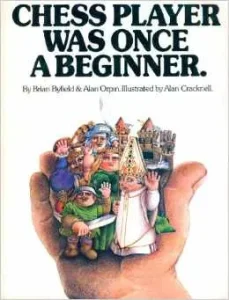
No, it is not crammed with info. Your kid just learns to recognize pieces and their moves. Also gets to know a couple of tricks like fork and discovered check .There is also a nice game by Morphy in the end.
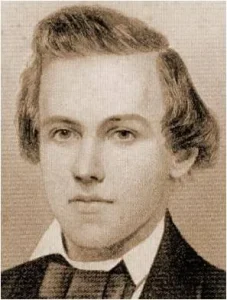
“Is that all? What is so special about the book?” You ask. It’s warm, humorous. The language is beautiful and the illustrations delightful. Need one say more? The book is long since out of print. A few copies are available at Amazon, though.
“But I am not married and have no kids….”
Missing the joys of parenthood (changing nappies), are you?
Never mind. Enjoy your freedom till it lasts.
Our real list begins here.
1. Chess Secrets I Learned From Masters by Edward Lasker (Descriptive Notation)
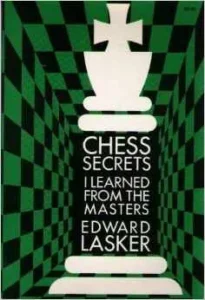
A fascinating autobiography in which the author recounts his meetings with the legends of his time, Capablanca, Rubinstein, Alekhine and Reti, not to mention his illustrious namesake Dr. Emanuel Lasker. The book is interspersed with games and positions. You learn without making a conscious effort.
2. Chess Fundamentals by Jose Raul Capablanca (Descriptive Notation)
Learn at the feet of the Cuban genius!
You don’t have to buy the book.
It’s in public domain.
However, if you want a new edition you can go for a hard copy or acquire an ebook in ChessBase or pgn format.
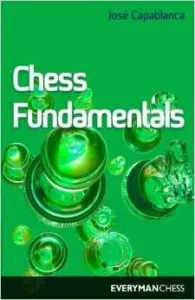
Generations of masters and grandmasters have learnt from this book. Botvinnik called it a classic.
It also has a sequel that deserves to be known.
3. A Primer of Chess by Jose Raul Capablanca
There is some overlap between this book and its predecessor Chess Fundamentals.
The writing on elements in both is essentially the same. However, there are some fresh insights on the middlegame and a dozen games from post-1921 period annotated by Capa. himself.
A recent edition is here:
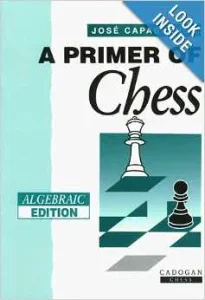
4. The Amazing Chess Adventures of Baron Munchausen by Amatzia Avni
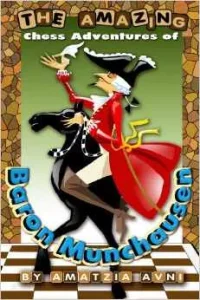
A series of incredible episodes from the life of a colorful hero whose moves leave you in a state of awe forever.
This is a book that would reveal the wonders of chess to the beginner. More seriously, it’s for all connoisseurs of the game.
A work of extraordinary imagination and creative fantasy not to be missed by anyone.
5. Van Perlo’s Endgame Tactics
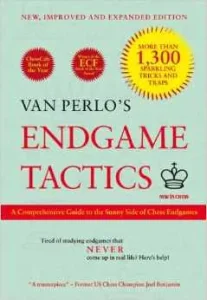
A lovely book that makes learning endgames a pleasure.
6. The Most Amazing Chess Moves of all Time by John Emms
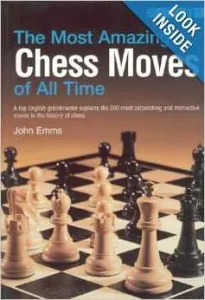
The title says it all. Learn to find spectacular moves over the board.
7. Great Tournaments and Their Stories by Andrew Soltis (Descriptive Notation)
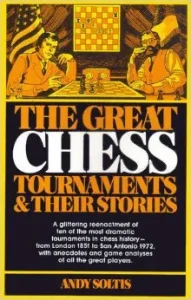
I stumbled on this old book by chance. You pick up a lot of chess lore even as you enjoy the games annotated by Soltis.
But make sure to compare the annotations with the next in case there are common games.
8. Mammoth Book of the World’s Greatest Chess Games by Burgess, Nunn and Emms
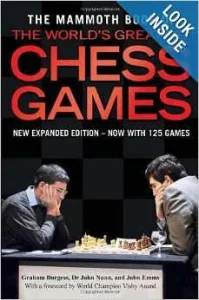
This book has 125 deeply annotated games from Anderssen to Anand era. Before every game the players are introduced and lessons to be learnt are mentioned in the end. Treat this work as a book of 125 lessons if you like.
We have not recommended any book on openings here. When you go through the games in this book you also learn about openings played therein.
For Further reading:
1. Understanding Chess Middlegames by John Nunn
2. Modern Chess Move by Move by Colin Crouch
3. Fighting Chess: Move by Move by Colin Crouch
4. Understanding Chess Endgames by John Nunn
5. Total Chess: Learn, Teach and Play the Easy 1-2-3 Way by John Herron



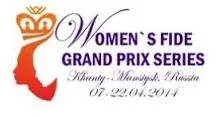






Comments: